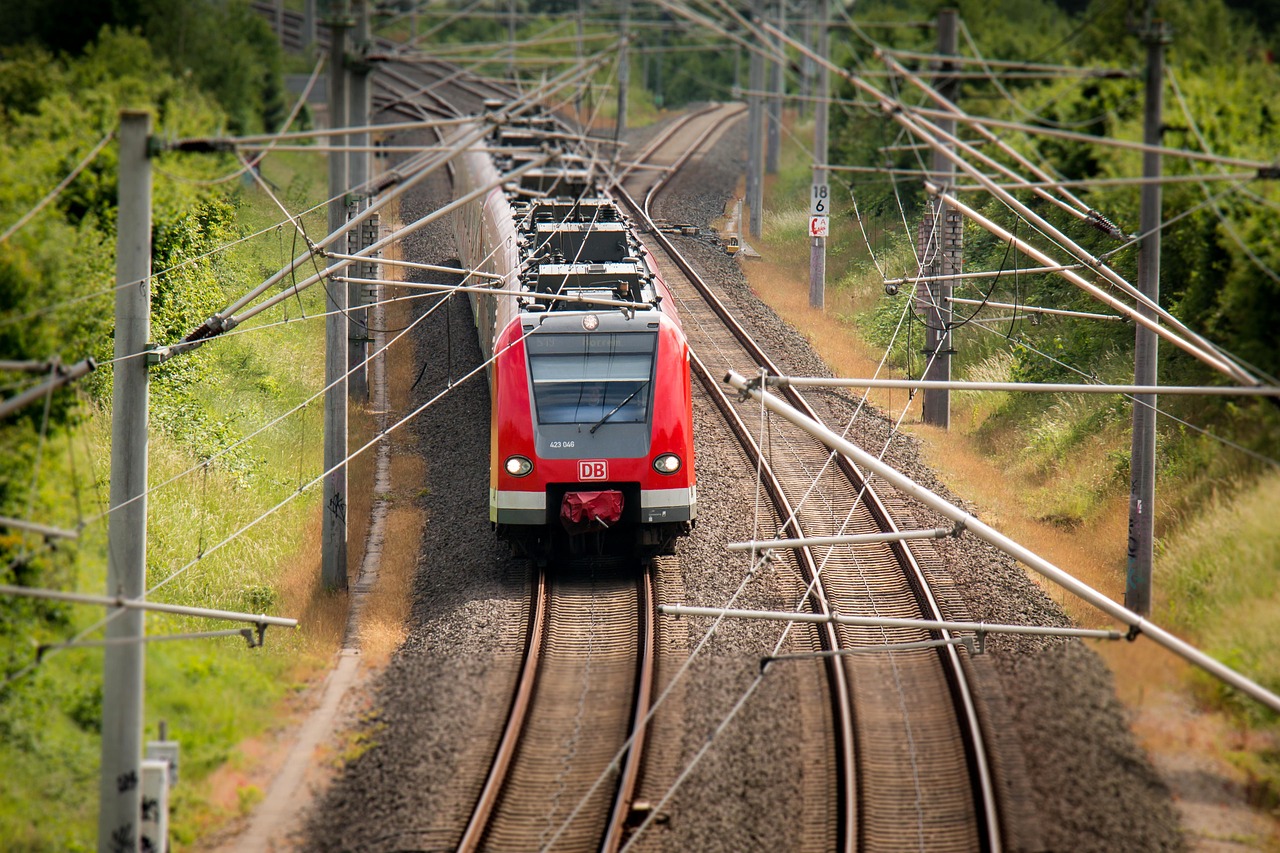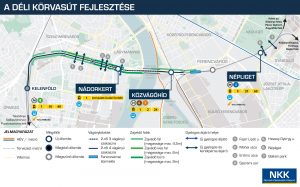
Tickets and seat reservations purchased by January 8 can be returned free of charge.Continue reading

The Ministry of Construction and Transport (ÉKM) announced the commencement of the next phase of the Southern Belt Railway development, aiming to upgrade the existing railway line from two to three, and at times four, tracks. Starting on Monday, this crucial phase follows the project’s environmental approval for the third time on November 24 of last year.
As an integral part of the Southern Belt Railway project, the renewal of the railway line between the capital’s districts, Ferencváros, and Kelenföld stations is underway.
The initiative also includes the construction of a new Danube bridge and the addition of three new stations: Nádorkert, Közvágóhíd, and Népliget.
This expansion contributes to the enhancement of the sustainable transport system in both the capital and its agglomeration, simultaneously addressing noise and air pollution concerns in the region.

Development plan of the Southern Belt Railway. Picture: NKK.hu
Initiating the project, the first step involves the construction of a closed mobile fence, followed by the removal of roadside vegetation on the MÁV JsC sites for railway safety reasons. Subsequently, the upcoming phase will include the removal or, where possible, replanting of a limited number of trees situated on the embankment sides. In compensation, the contractor is tasked with planting approximately 2,000 pre-grown trees with larger trunk diameters.
The number of newly planted trees will significantly exceed the ones replaced, ensuring not only an improvement in sustainability but also the creation of a new green corridor for the area.
The announced works will commence on the Buda side of the line starting this Monday. The construction of the closed mobile fence is projected to last until February 7, concurrently with the clearing of bushes and shrubs, which will occur exclusively on MÁV land.
The ministry emphasizes that the Southern Belt Railway development aims to position the railroad as the most sustainable and environmentally friendly mode of public transport in Budapest, offering a competitive alternative to motor transport in suburban, local, national, and international traffic. This necessitates an expansion of the current capacity, and the investment is expected to enhance transport links, increase track throughput, reduce noise pollution, and replace illegal and hazardous crossing routes with new, safe crossings.
Via MTI; Featured Image: Facebook / MÁV